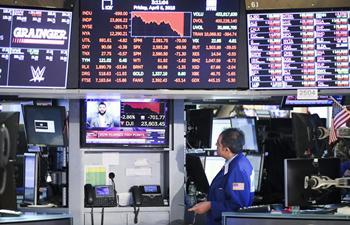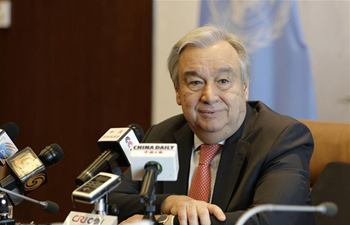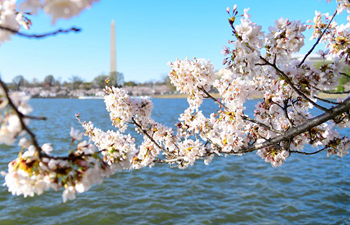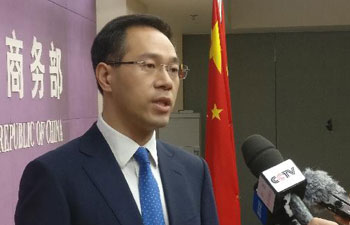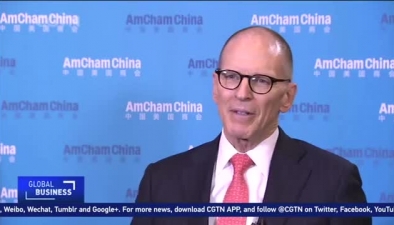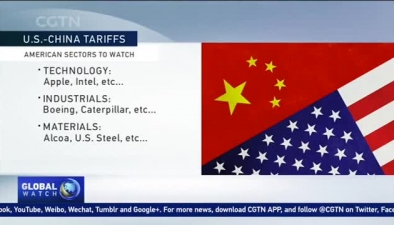By Evan Duggan
VANCOUVER, April 6 (Xinhua) -- Knee-jerk reaction in the simmering trade dispute between China and the U.S. will only serve to escalate the confrontation, say Canadian trade experts.
"The problem with that is these types of punitive import duties don't work in trying to curb the behavior that both the U.S. and China are trying to establish," said Mike Manjuris, a trade expert at Ryerson University in Toronto.
U.S. President Donald Trump's playbook seems to be pursuing punishment instead of parley, Manjuris told Xinhua in an interview. "Call it the knee jerk reaction of the (U.S.) administration, and specifically the President."
He said both parties should pursue a diplomatic course in the short-term and create legislation over the long term to handle specific bilateral trade grievances without harming the overall flow of products between the world's two largest economies.
On Friday, China said it would fight back at any cost if the U.S. continues down a path of import duties against Chinese products.
That came shortly after U.S. President Donald Trump threatened to slap an additional 100 billion U.S. dollars in tariffs on Chinese goods, escalating the rhetoric from an earlier threat of 50-billion U.S. dollars in various tariffs.
On Wednesday, China responded to Trump's initial threat by announcing a list of 106 U.S. goods that would be targeted by retaliatory tariffs, including soybeans, whisky, beef and aircraft.
"The U.S. is trying to hurt China in... the technology sector," Manjuris said. "It's an area where China is trying to further develop and that's what they took aim at first."
Manjuris said punitive import duties would only lead to a "tit for tat" trade war. "When that starts to happen, that's not good for anybody."
He said if these "knee jerk" reactions continue, the entire global economy could suffer.
James Brander, a trade expert at the University of British Columbia in Vancouver, said it's premature to label this a trade war, as the tariffs have yet to take effect - and may not.
"I think it's just actually typical Donald Trump," he said. "He's posturing and making threats, and then pulls back from the threats. It's clearly all part of the negotiating strategy that has used in his private sector activities, which he has taken with him to the White House."
Brander said he remains optimistic that this dispute gets settled without any tariffs taking hold.
"If there really was a major trade war between the U.S. and China, that would have an aggregate effect on global economic growth," he said. "It would certainly be bad for both China and the United States. But I just don't see that happening."







